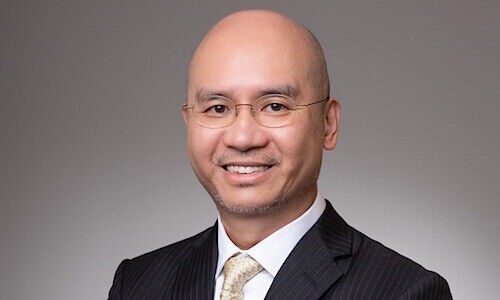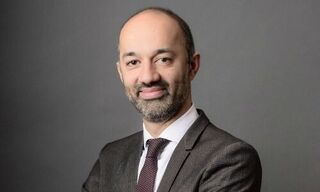With Credit Suisse's shares trailing the SMI, Swiss finance waits in suspense for the bank's new strategy. Chairman António Horta Osório needs to make something stick.
There isn't much time left. In about three weeks Credit Suisse will showcase its new strategy as part of the third-quarter earnings presentation. Any delay would be damaging, not least given the Greensill investigation report has already ostensibly been pushed back, as finews.com reported last week. If chairman António Horta Osório doesn't want to lose more momentum, he needs to deliver something in November – at least that is what Zurich's financial elite are saying.
There has already been a great deal of speculation. Many have talked about shrinking the investment bank, as UBS did a few years back. But a new strategy can't just be based on cuts – on divestments, on shrinkage alone. Horta Osório needs to go on the offensive and deliver a deeply compelling investor pitch.
Trailing the SMI
That kind of pitch is urgently needed as investors have lost confidence. Shares in Switzerland's second-largest bank have fallen by 20 percent this year, meaning that they have become the worst-performing title on the Swiss Market Index (SMI). The board of directors has also cut the dividend to 0.10 Swiss francs a share, which makes them very unattractive as dividend plays.
As research by finews.com indicates, there is a place for an investment bank in any future strategy. Even though the business was significantly downsized under former CEO Tidjane Thiam, it still makes up 40 percent of the revenues of the entire group. And this year that percentage could increase, particularly when you look at the recently announced results by the major US investment banks. All of them showed buoyant earnings from M&A, IPOs and other financial placements in the first nine months of the year.
Several Problems
Besides that, Credit Suisse's investment bank is the largest of its kind in Europe. If it became any smaller, it would lose its right to exist. That means that any new direction has to come through the wealth management division, which is the bank's most important division. There are many indications that the largest changes are going to come from there.
The Swiss Universal Bank (SUB), International Wealth Management (IWM) and the Asia Pacific region currently face two problems. They operate too independently, something global clients find inefficient, as it leads to redundancy and higher costs. The three wealth management units also lack a common IT system. The one they have now is fragmented and is one of the last remnants of the Thiam era.
Exorbitant Cost
The IT system in Asia Pacific is the bank's most advanced one, which it would like to introduce to other regions. But until now, it has not managed to do so. Italy should have introduced the new system by now as the first country outside Asia to do so, but the project has just not gotten any traction, only leaving triple-digit millions in costs in its wake. Given that, the other European markets are just hanging in limbo.
When you look at that, you realize that organizationally merging all three wealth management units, SUB, IWM and Asia, needs to be at the core of any new strategy and that the investor pitch has to build on that. That would also help to defray some of the investment bank's high capital costs.
IWM head Philipp Wehle hinted at just that a few months ago in an interview with finews.com. He said he was striving to work with the investment bank more closely, given that ultra-high net worth clients often also needed and used investment banking services.
Swiss Roots and Values
That would set a future direction. Horta Osórios ambition is likely to be global and one that can be fulfilled with a more coherent wealth management division and the services of a significant investment bank, all relying on the backbone of the bank's Swiss original roots and values. That kind of focus would create the conditions that would help Credit Suisse start to put its recent fiascos in the past while bringing back investors.
And what jobs CEO Thomas Gottstein and IWM head Wehle would have in all that is very secondary.



























